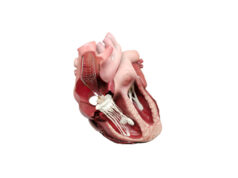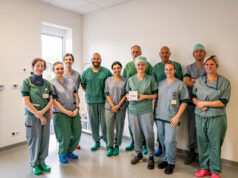Micro Interventional has announced that the second successful implantation of its minimally invasive annuloplasty (MIA) technology. The patient was enrolled in the first arm of STTAR (Study of transcatheter tricuspid annular repair), which is a clinical trial studying the safety and efficacy of the MIA device. The device is designed to eliminate or greatly reduce tricuspid regurgitation.
According to a press release, this is the second patient enrolled in the surgical arm of the STTAR study using a bicuspidization approach. The procedure took less than 14 minutes. The rapid, reproducible deployment of the MIA implant resulted in a 24% reduction in annular area and a reduction in tricuspid regurgitation from moderate regurgitation pre-procedure to trace regurgitation post-procedure. As with the other four STTAR cases, there were no intraoperative complications or adverse events observed or reported.
Enrolment in the surgical arm of the STTAR Trial continues with Kestutis Rucinskas and Audrius Aidietis (both are at the Vilnius University Hospital Santariskiu Clinic in Vilnius, Lithuania). The percutaneous arm of the STTAR study is anticipated to commence in Q4 2017. The press release reports that preclinical testing of the delivery catheter at major universities has proven that the 12F delivery system is effective under imaging guidance in procedures completed in less than one hour. It adds that the delivery system is simple to use and it is anticipated that the low mass implant will preserve physiological function and all future options for intervention.
Willard Hennemann, MID’s chief science officer, says: “If the catheter results that we have been collecting in our weekly preclinical labs translate to the clinic, MIA is poised to be an effective and simple transcatheter device for the treatment of tricuspid regurgitation. We are excited about the potential for MIA to be a technique that is easily adaptable as a treatment of choice for the reduction and/or elimination of tricuspid regurgitation.”
MIA uses proprietary, compliant PolyCor anchors, and is engineered to plicate and comply with cardiac tissue once deployed.











